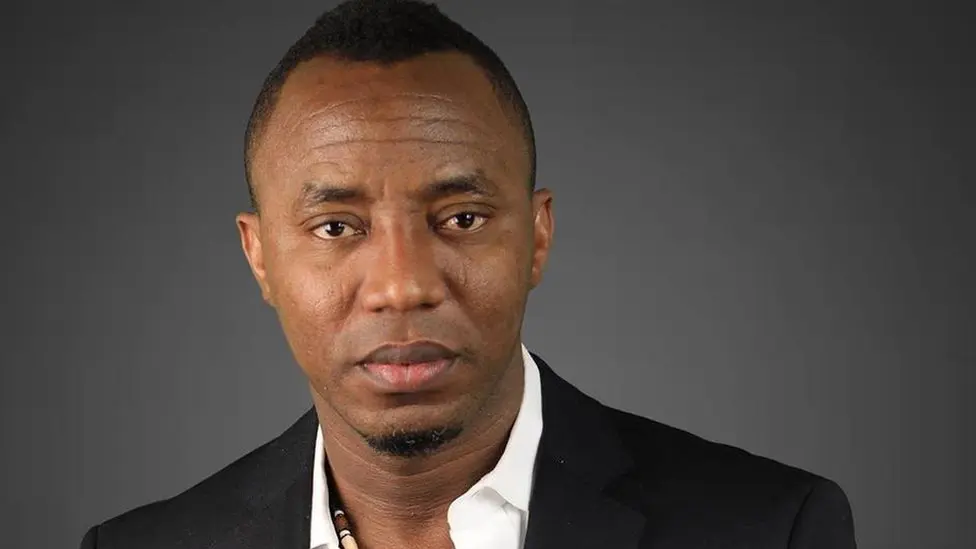920
By Oscar Okhifo, Abuja
The African Action Congress (AAC) on Friday issued a searing condemnation of the Nigeria Police Force following the re-arrest of its National Chairman, Omoyele Sowore, inside court premises, an act the party says underscores systemic bias, hypocrisy, and the criminalization of dissent.
Sowore, who earlier in the day had been granted bail by a magistrate court in Kuje, Abuja, was violently re-arrested moments later within the court environs, as police operatives reportedly dragged him to the ground, pushed aside intervening lawyers, and whisked him away in a waiting van.
Eyewitnesses said Sowore was brutalized alongside lawyers and other persons who demanded to see a valid arrest warrant.
In a statement signed by Femi Adeyeye, AAC’s National Publicity Secretary, the party said the arrest was further proof of what it described as “selective justice”, a pattern of persecution directed at regime critics rather than applied impartially. The AAC asserted that Sowore has now been the target of at least five detentions in 2025 alone, each time under what it called “trumped-up charges aimed at stifling political opposition.”
Shortly after the re-arrest, Benjamin Hundeyin, Police Force spokesperson, confirmed that Sowore would be arraigned on Monday on charges of defamation, following his alleged comment that President Bola Tinubu is a criminal.
Hundeyin said the police were merely enforcing the law, claiming that Sowore “led protesters into a restricted area” in defiance of a court order.
But the AAC dismissed those assertions as disingenuous, noting that other protest groups had proceeded without interference.
The party said, “The very same police who escort protests against Kanu’s release are now violently arresting Sowore for demanding justice. This is hypocrisy of the highest order.”
Sowore’s legal team, including human rights lawyers Tope Temokun and Deji Adeyanju, immediately decried the re-arrest as “a violation of due process and an act of contempt against the court’s bail ruling.”
The lawyers were in the process of meeting his bail conditions when operatives swooped in and forcibly took him away, refusing to present any remand or arrest order in open court.
Rights groups and civic organisations have also denounced the incident.
The Take It Back Movement (TIB) described the arrest and frequent harassments as “an attempt to silence dissenting voices” and warned that nationwide protests would follow if authorities failed to release Sowore unconditionally.
Amnesty International and other international rights bodies have said that the repeated arrests and detentions of activists in Nigeria form “a pattern of repression and shrinking civic space that must end immediately.”
Similarly, the Coalition of United Political Parties (CUPP) and Arewa Youth Ambassadors condemned what they called “the misuse of police powers to settle political scores,” warning that “continued impunity by security agencies risks eroding democratic freedoms and civic trust.”
The AAC reaffirmed that Sections 39 and 40 of the 1999 Constitution guarantee the rights to freedom of expression and peaceful assembly.
It argued, “no court order or police action can override.” The party further vowed to spearhead efforts to “decriminalize peaceful protest” in Nigeria.
“This government cannot continue to use the police as an instrument of intimidation,” the statement added. “Peaceful protest is not a crime and cannot be restricted to certain areas.
“We will continue to campaign for the total decriminalization of protests in Nigeria.”
This episode comes amid heightened tensions surrounding the continued detention of IPOB leader Nnamdi Kanu, whose case remains a flashpoint in national discourse.
Voices across the political and legal spectrum have warned that escalating state suppression risks eroding Nigeria’s democratic norms and undermining trust in its institutions.
As the nation awaits Monday’s arraignment, the clash between protest, law enforcement, and constitutional rights has once again come into sharp focus, raising fundamental questions about who gets to speak dissent in today’s Nigeria.



